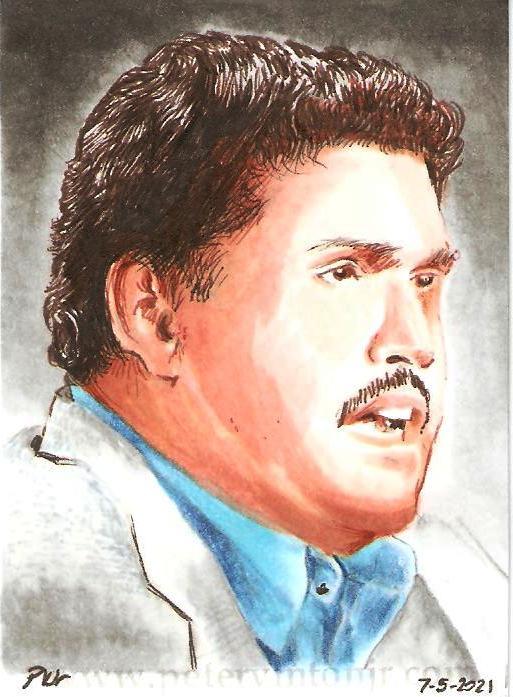
An ongoing illustrative history study
This piece originally posted 8/3/2021
Prelude | 97 | 98 | 99 | 100 | 101 | 102 | 103 | 104 | 105 | Email |
|---|
The more I studied Black biographies, the more I noted how much attention was paid to the trailblazing entertainers, which is of course significant in and of itself. But one piece of trivia stood out --or rather, it was conspicuous by its absence. Theatre and movies and television offer a great many "firsts" among African-Americans, but even the greatest performers are nothing without a script, and that set me on a bit of a hunt, which proved a little more surprising (and difficult!) than I would have anticipated.
The result of this particular hunt was not ancient history, by the way --it was disappointingly recent. Many of you likely remember The Corner, a critically-acclaimed six-episode drama which aired on HBO in 2000. Its writers, David Simon and David Eugene Mills, jointly won an Emmy for Outstanding Writing for a Miniseries or a Movie, making Mills the first-ever Black television writer to win an Emmy.
Born in 1961, Mills grew up in Maryland and got into journalism at the University of Maryland, on the staff of the student newspaper The Diamondback, where he first met his future colleague David Simon. After graduating he worked as a features writer --mostly celebrity interviews-- for The Wall Street Journal, The Washington Times, and The Washington Post. Significantly he interviewed R&B artist Sister Souljah for the Post in 1992, in the days following the post-Rodney King verdict riots, in which she stated that violence was an entirely acceptable response to the verdict. The incendiary remarks were swiftly condemned by then-candidate Bill Clinton.
It was principally with the Post that Mills developed the closest working relationships with the celebrities he covered, which would ultimately redirect his career towards writing for television, and in in 1993 he began submitting scripts. Among his earliest successes were a 1994 episode of NBC's Homicide: Life on the Street(which guest-starred Robin Williams), and nine episodes of ABC's popular NYPD Blue. The Corner was based on a nonfiction book co-written by Simon, chronicling the life of a family caught up in an open-air drug market in West Baltimore. His writing style unapologetically captured a realism in its portrayal of race relations and racial tension. Mills's later contributions included scripts for HBO's The Wire and also NBC's Kingpin, the latter of which Mills was also executive producer.
A self-described music nerd, Mills often worked sly throwaway lines referencing up-and-coming artists in his work, as well as clever callbacks to famous R&B or jazz musicians. A particular recurring favorite was slipping Parliament-Funkadelic (P-Funk) references into scripts --eventually Mills's collected interviews with various P-Funk musicians over the years, would be published as George Clinton and P-Funk: An Oral History. Mills would remark that his comparatively light complexion offered him a unique vantage point on the observed nuances of race in America, describing himself as an "Undercover Black Man."
Mills died suddenly of a brain aneurysm on March 30, 2010 in New Orleans, just days before the first episode of his newest series Treme, would air on HBO.
Enough of my inane babbling. Read Mills's delightfully-constructed words for yourself, still viewable at: http://undercoverblackman.blogspot.com/
Next page - Lesson 102: Jessie Carney Smith